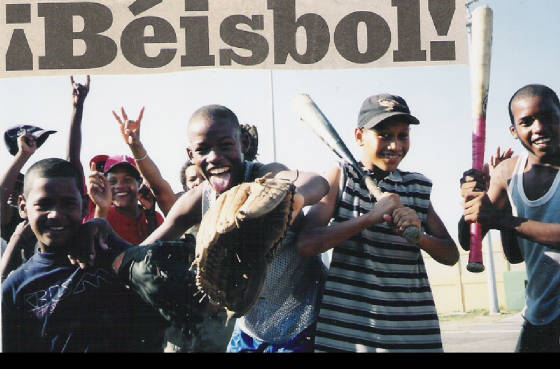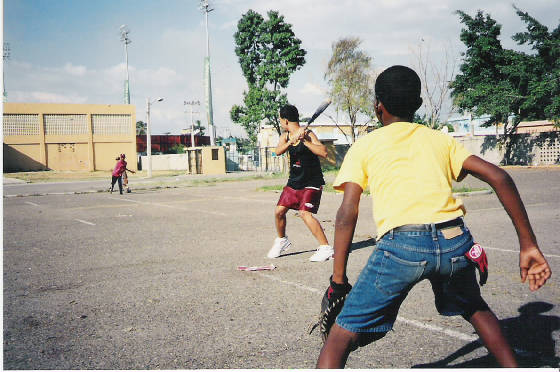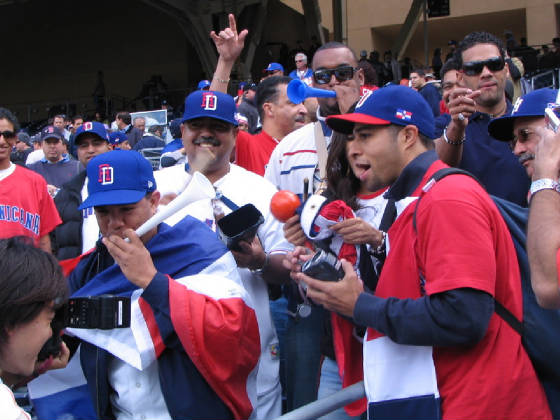|


“I
loved the way you described Dominican baseball…it really hit every aspect of Dominican ball. Being a Dominican myself
I'm really proud and full of pride of my country's baseball history and culture. THX for letting the world know how important
baseball is for us and how baseball is in the Dominican everyday life! I'm really looking forward to reading some of the other
countries baseball traditions and guides!! Great stuff!” – Ariel, Dominican Republic “I have begun taking a look at the guide, and
it is wonderful so far. I'm planning a Dominican ballpark tour and wanted to get a head start.” – Mike,
Seaford, New York
“I purchased your Guide
for Dominican Baseball and was going through it. It's wonderful that you've created these guides, what a great idea!
All baseball lovers, I'm sure, are eternally grateful.” – Lisa, New York It’s one of the poorest countries in the Caribbean –
and it’s one of the biggest hotbeds for baseball talent in the world. From Monte Cristi in the far northwest to La Romana
in the southeast, baseball isn’t just a game in the Dominican Republic, it’s a religion. Fans witnessed this talent
on display in the World Baseball Classic, and Joe Connor’s got all the information you ever wanted to know about baseball on the island of Hispaniola in World
in a Ballpark: Baseball Goes Global, which is available for purchase
at the Buy Joe's Guides page. If you want to view a sample of the guide and how easy the guide
works, visit the MLB Ballpark Trips page. We also hope you enjoy this collage of baseball: Dominican
style!
| ALBERT PUJOLS WANNABE'S TAKE A BARRIO GAME BREAK |
|
|
| (above right) GIVE ME A BEAT: EASTERN STAR DANCERS GETTING DOWN ATOP THE TEAM'S DUGOUT |
In a country where the majority of residents live in shacks, struggle daily just
to put food on the table and use "motorconchi’s" (the U.S. version of mopeds) to get around, baseball is as much a part
of the landscape of Hispaniola as merengue, the Latin rhythm that beats to all hours of the day in its cities and barrios.
On any given day during any time of year in any town in the Dominican Republic, you
will witness children of all ages swinging make-shift bats and throwing make-shift balls in pick-up games. Sticks from nearby
trees may be used as bats, and bottle caps may be used as the baseball. The kids play in dirt alleyways where bases are created
by using rags or putting together a group of small rocks.
How big is baseball in this country? Take one afternoon alone, the day after Christmas
to be exact in the large, garbage-strewn parking lot outside Tetalo Vargas Stadium in San Pedro de Macoris, the Dominican
Republic’s third largest city whose most famous resident is famous for saying, "Beisbol has been very, very good to
me!"
In every corner of Tetalo’s parking lot, there is a game in progress. Kids,
10-16 years of age, donned in flip-flops and ratty t-shirts and shorts - but all wearing a baseball cap of a major league
team. Only a few own gloves and the bat isn’t made by any well-known manufacturer. The ball - it’s a roughed-up
tennis ball, if you want to call it that.
Yet this town alone has produced three of the game’s biggest stars: Slammin'
Sammy Sosa, Alfonso Soriano and Luis Castillo.
Bottom line: the Dominican Republic produces players from every aspect of
the game - and they come from all over the country. And they’re going to keep coming. That's because baseball
is life here - and a way out to make a decent standard of living.
|
|
| THE BEST OF ALL THE REST: AGUILAS' ESTADIO CIBAO |
|
|
| FROM SIGHT LINES TO SEATS, AND HISTORY TOO, SANTIAGO STADIUM IS THE DR'S BEST BALLPARK - BAR NONE |
THE TOWNS AND PLAYERS THAT MAKE UP THE DOMINICAN REPUBLIC
San Pedro de Macoris is some 45 minutes east of the capitol city
of Santo Domingo where 3 million Dominicans live, which has produced the likes of Albert Pujols, Manny Ramirez
and Octavio Dotel, just to name a few. In Santo Domingo’s suburban barrios lie the hometowns of Cy Young winner
Pedro Martinez and All-Star Vladimir Guerrero, in Manoguayabo and Nizao, respectively.
About a hour plus west of the country’s largest city lies Bani
- shortstop capitol of the Dominican Republic. En route to Bani, you could stop in San Cristobal, hometowns
of Jose Guillen, among others. In working class Bani, the favorite son is 2002 American League Most Valuable Player Miguel
Tejada, but there’s plenty of other shortstops from Bani. But Santo Domingo,
San Pedro de Macoris, San Cristobal and Bani only represent players from within an hour or so of the capitol.
| BEISBOL, LATIN STYLE: MERENGUE EVERYWHERE... |
|
|
| (above left) SANTO DOMINGO'S LIONS FANS REJOICE; "CEREMONY OF THE DEAD" IN SAN PEDRO DE MACORIS |

|
 |
|
|
 |
|
|
 |
|
|
|

